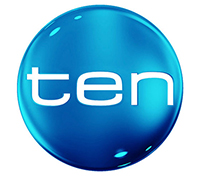Australian media laws overhauled and underpinned
THE Federal Government has passed the biggest changes to Australian media laws in 30 years – finally, with political concessions, and in part response to the rise of the internet.
Prime Minister Malcolm Turnbull said the aim of the new laws was in “strengthening Australia’s media industry, enhancing media diversity and securing local journalism jobs, particularly in regional areas”.
“These changes bring Australia’s outdated media laws into the 21st century,” Mr Turnbull said. “They now finally recognise the enormous disruption that has been caused by the internet. Australian media companies will now be better placed to compete with the big online media companies from overseas.” 
In the environment of Network 10 being insolvent and held in administration – then eventually sold to lead creditor US media giant CBS – the government has abolished broadcast licence fees and replaced them with a more modest spectrum charge. This in effect provides almost $90 million a year in ongoing financial relief to metropolitan and regional television and radio broadcasters – acknowledging the importance of free-to-air television to Australian communities.
Another community-based measure is the ordered reduction in gambling advertising during live sport broadcasts. Communications Minister Mitch Fifield said this represented “a strong community dividend with the establishment of a clear ‘safe zone’ for families to enjoy live sport”.
A major financial concession is the abolition of redundant ownership rules that shackle local media companies and inhibit their ability to achieve the scale necessary to compete with foreign technology giants, according to Mr Fifield.
Also in the community interest is the retention of diversity protections that ensure multiple controllers of television and radio licences as well as minimum numbers of media voices in all markets. These are the two-to-a-market rule for commercial radio, the one-to-a-market rule for commercial television, the requirement for a minimum of five independent media voices in metropolitan markets and a minimum of four independent media voices in regional markets. These are supplemented by the competition assessments made by the Australian Competition and Consumer Commission (ACCC).
Higher minimum local content requirements for regional television following trigger events, including introducing minimum requirements in markets across South Australia, Victoria, New South Wales, Western Australia and the Northern Territory for the first time.
There are also reforms to ‘anti-siphoning’ requirements – providing free access to key televised sporting events – designed to strengthen local subscription television providers.
“The package provides significant and permanent financial relief for Australia’s broadcasters, acknowledging the intense competition they face for audiences and advertising revenue, especially from online and on-demand operators,” Mr Turnbull said. “Legislation will also be introduced by the end of this year to give effect to a public register of foreign-owned media assets.”
Other items on the media law agenda are in response to specific requests from independent senators in order to have the bill passed by both houses of Parliament.
The government will implement a $60 million Regional and Small Publishers Jobs and Innovation package including which, among other things, provides a $50 million Regional and Small Publishers Innovation fund. There is also a Regional and Small Publishers Cadetship Program, to support 200 cadetships, and 60 regional journalism scholarships.
Mr Turnbull thanked the Australian media industry for its consultations and for supporting the reforms. He said discussions included WIN, Prime, Southern Cross Austereo, Nine, Seven, Ten, Fairfax, News Corp, Foxtel, Free TV, ASTRA and Commercial Radio Australia.
“The Australian media industry has been united in its support for these reforms and will now be given the fighting chance they need to secure their future,” Mr Turnbull said.
Also in the mix were the proposals of Senator Bridget McKenzie to enhance the ABC’s focus on rural and regional Australia and a range of “enhanced transparency measures” for the public broadcasters. The senator also lobbied to include the words ‘fair’ and ‘balanced’ in Section 8 of the ABC Act and for the introduction of a community radio package.
“The Government also thanks the crossbench for their constructive participation and commitment to ensure these reforms were passed in the Parliament, in particular, Pauline Hanson’s One Nation, the Nick Xenophon Team, Senator Derryn Hinch, Senator David Leyonhjelm, Senator Cory Bernardi and Senator Lucy Gichuhi,” Mr Turnbull said.
He criticised the approach of the Opposition in seeking to “defend media laws that were decades out of date”.
ends




